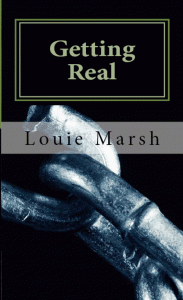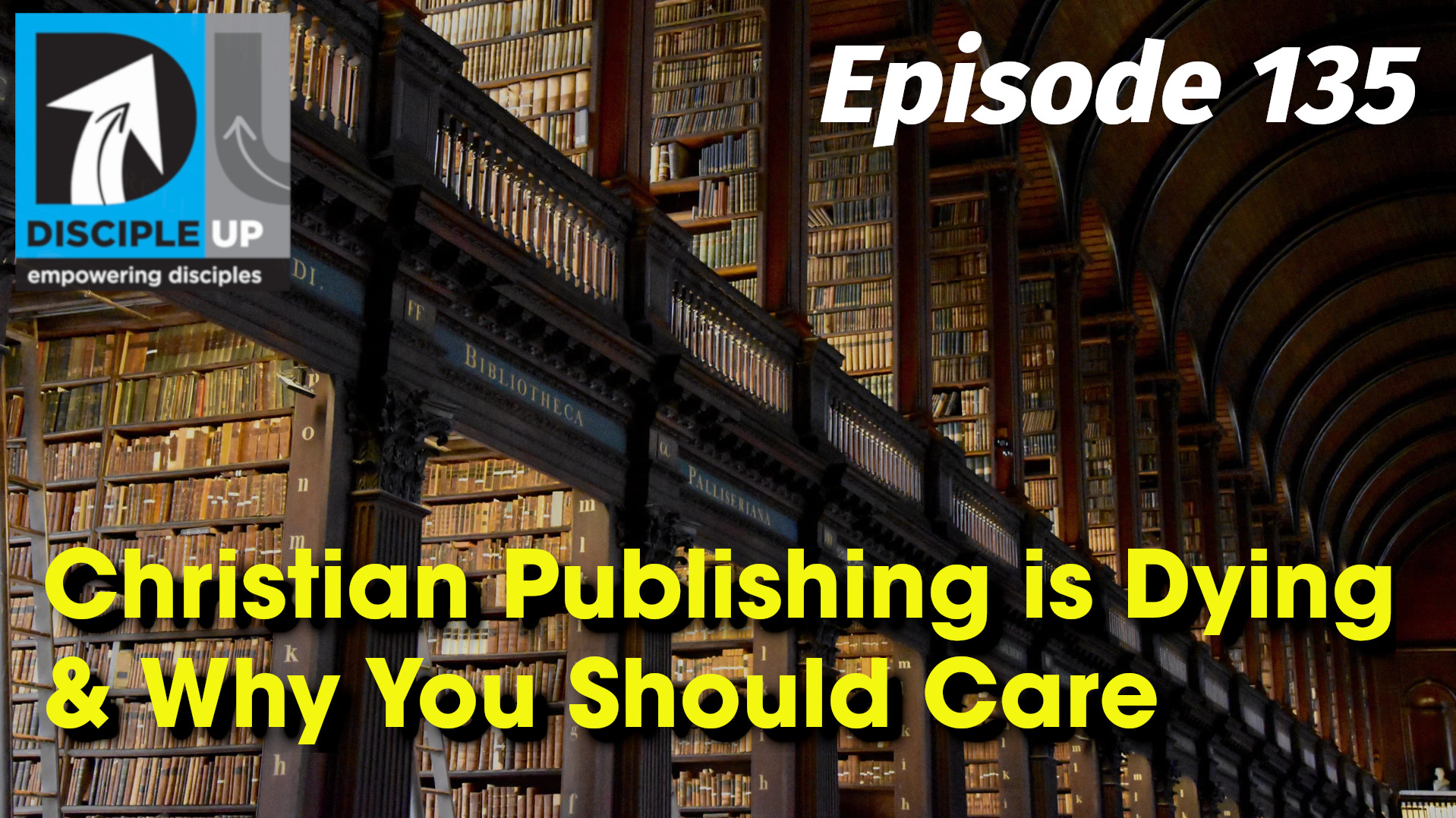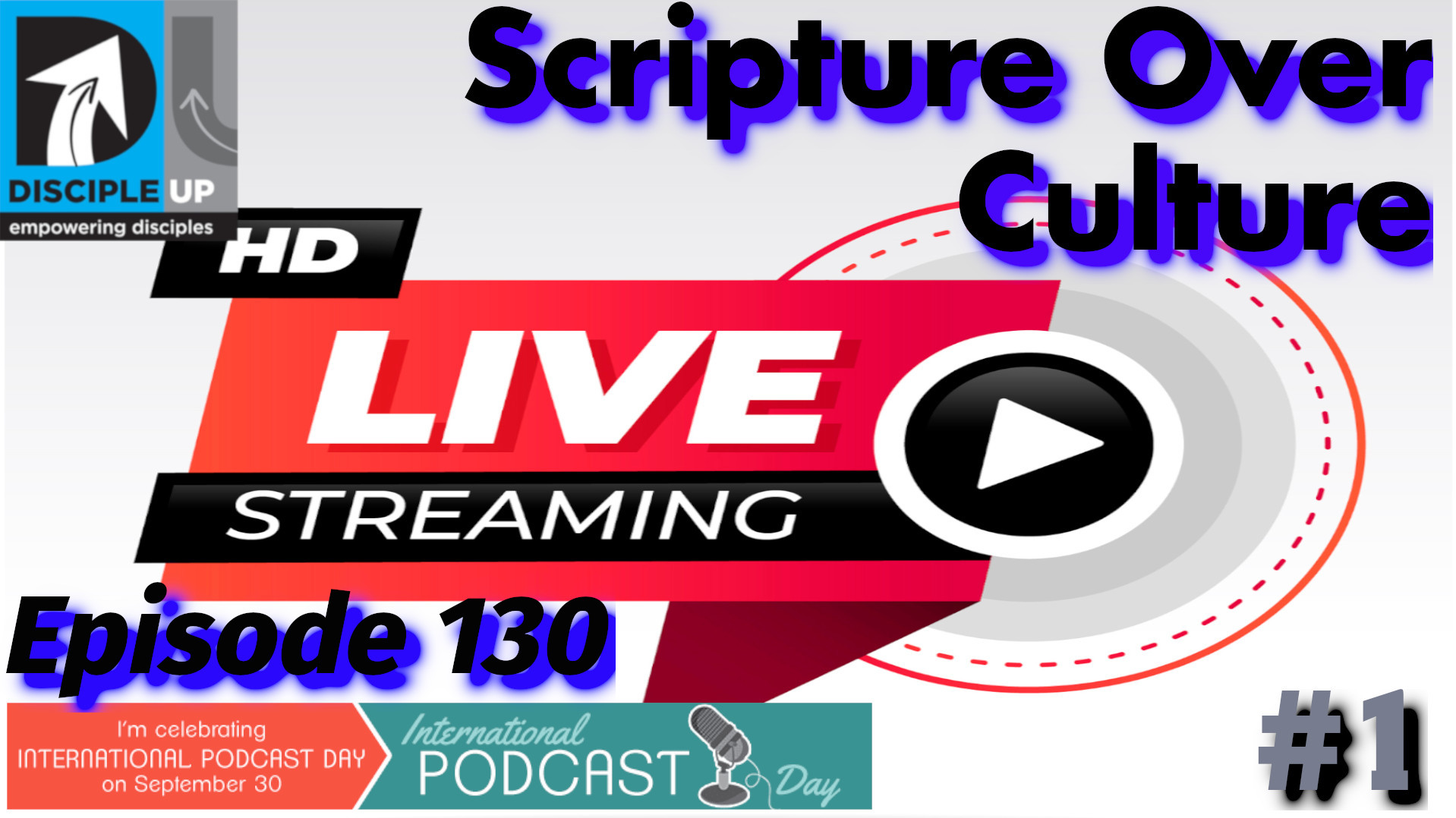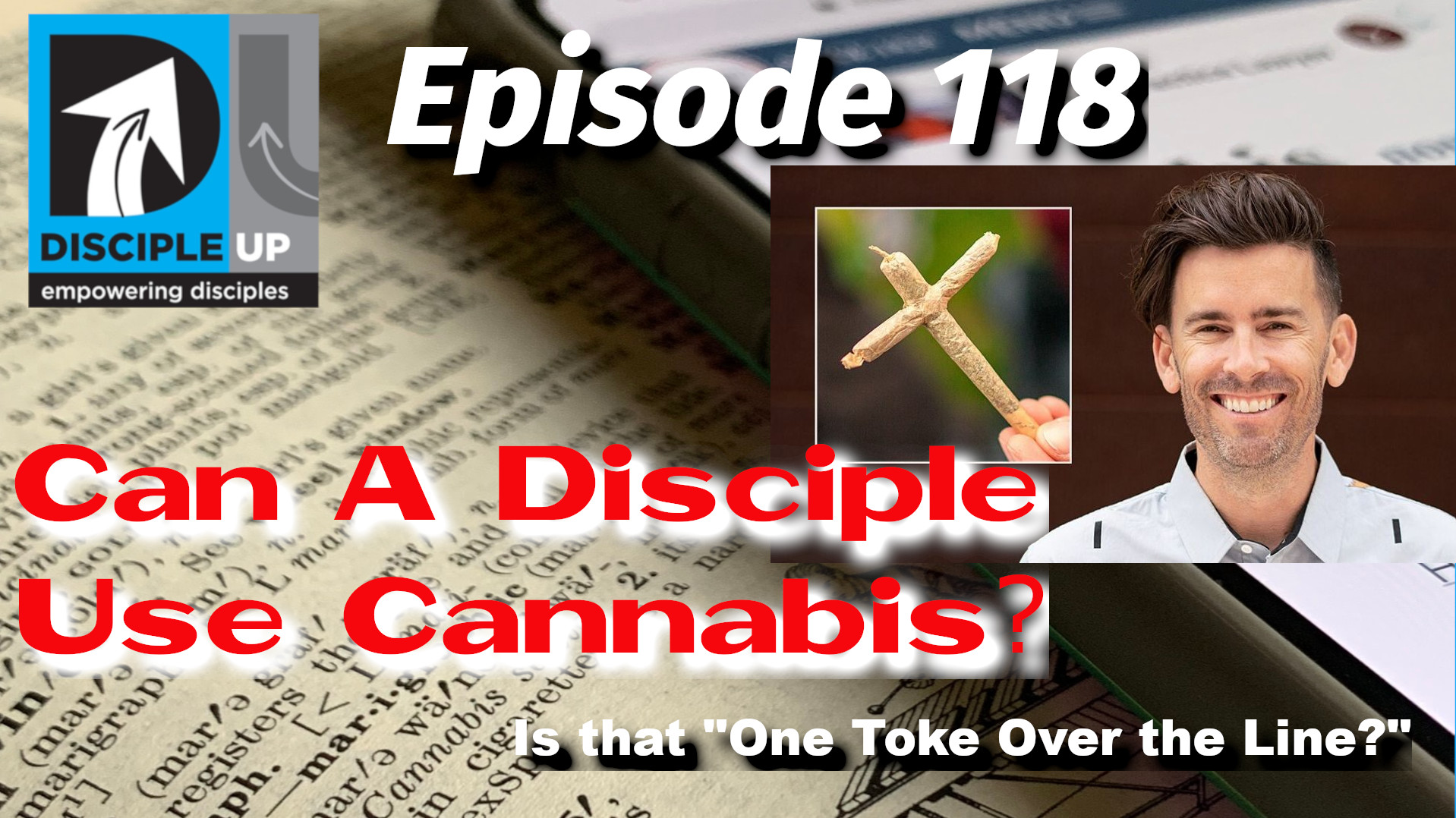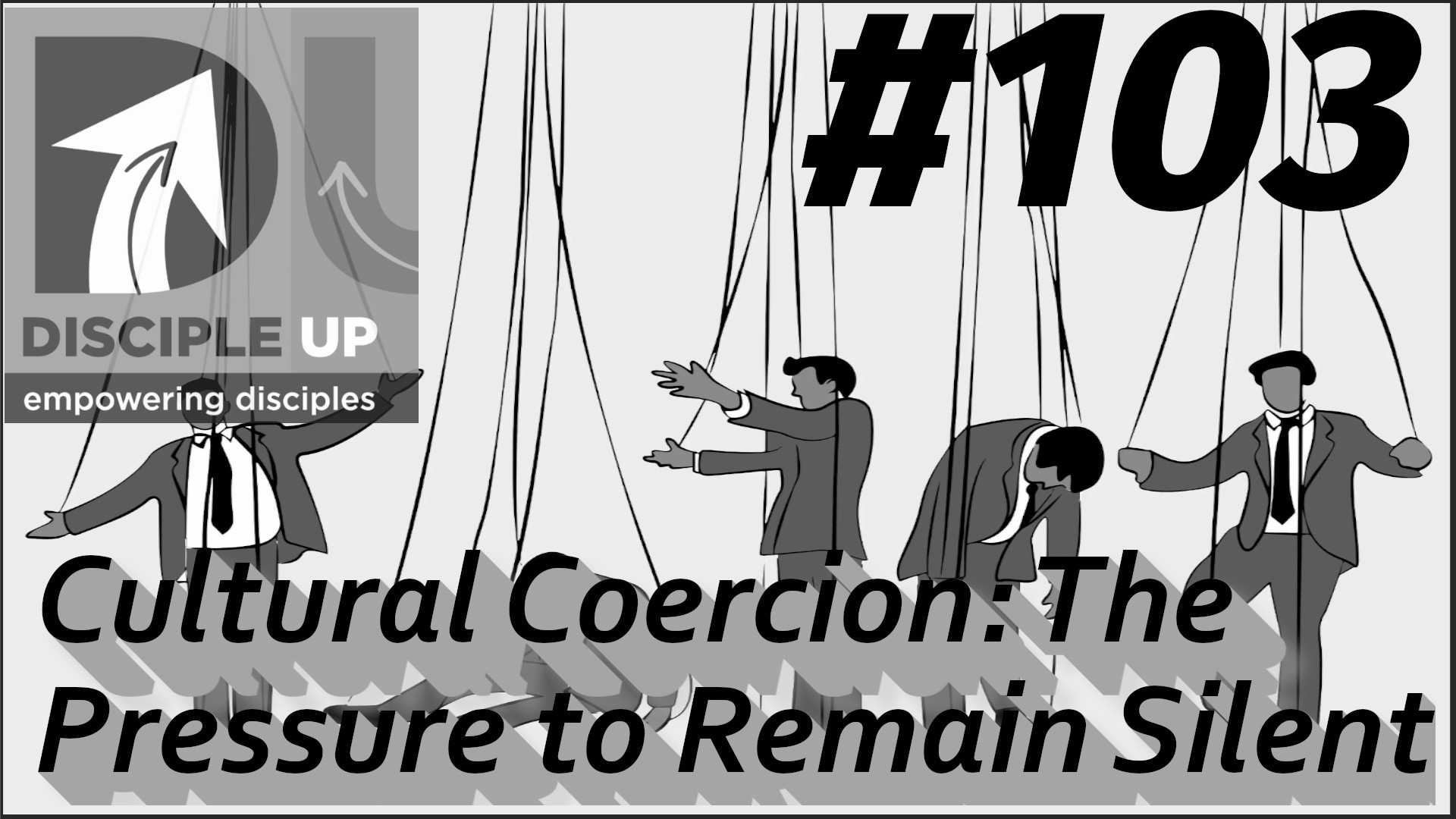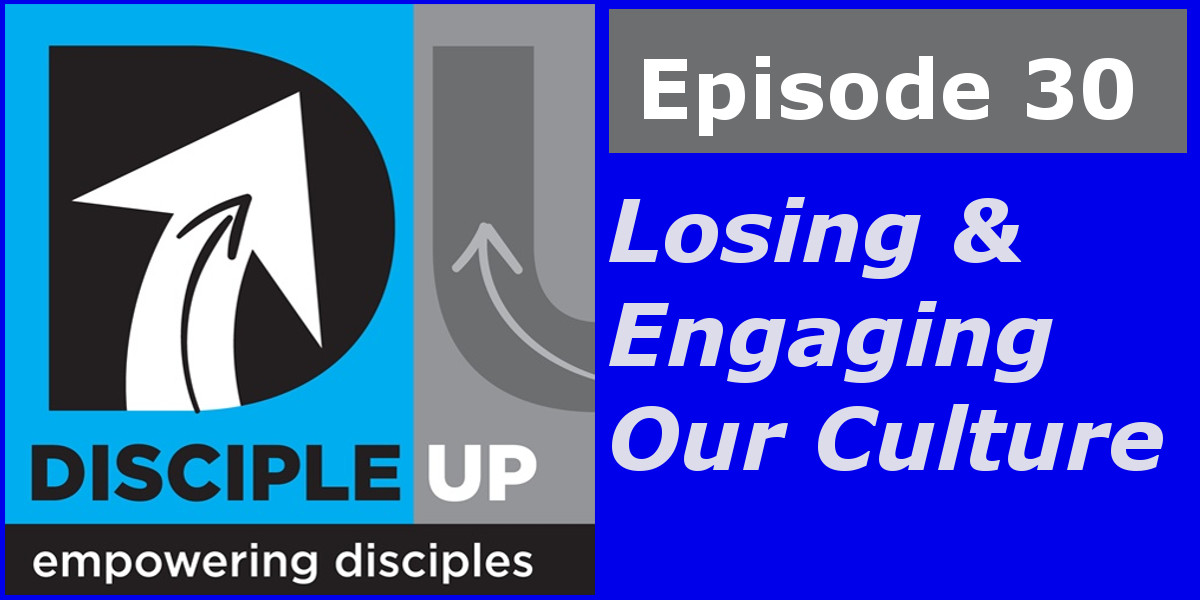Scripture Over Culture
By Louie Marsh
THEORETICAL FAITH:
1) Faith in Christ is MY CHOICE.
The Lord is my light and my salvation– whom shall I fear? The Lord is the stronghold of my life–of whom shall I be afraid? Psalm 27:1
Faith is a personal choice placed in a PERSONAL GOD.
2) Then Jesus becomes MY PERSONAL SALVATION.
Then Peter, filled with the Holy Spirit, said to them: “Rulers and elders of the people! If we are being called to account today for an act of kindness shown to a cripple and are asked how he was healed, then know this, you and all the people of Israel: It is by the name of Jesus Christ of Nazareth, whom you crucified but whom God raised from the dead, that this man stands before you healed. He is ” ‘the stone you builders rejected, which has become the capstone.’ Salvation is found in no one else, for there is no other name under heaven given to men by which we must be saved.” Acts 4:8-12
IT RESULTS IN…
1) POSITIVE CONFIDENCE – because God is with me!
When evil men advance against me to devour my flesh, when my enemies and my foes attack me, they will stumble and fall. Though an army besiege me, my heart will not fear; though war break out against me, even then will I be confident. Psalm 27:2-3
Such love has no fear because perfect love expels all fear. If we are afraid, it is for fear of judgment, and this shows that his love has not been perfected in us. 1 John 4:18 (NLT)
2) POWER through focus.
One thing I ask of the Lord, this is what I see…: Psalm 27:4a
But seek first his kingdom and his righteousness, and all these things will be given to you as well. Matthew 6:33
Brothers, I do not consider myself yet to have taken hold of it. But one thing I do: Forgetting what is behind and straining toward what is ahead, I press on toward the goal to win the prize for which God has called me heavenward in Christ Jesus. Phil. 3:13-14
Therefore, since we are surrounded by such a great cloud of witnesses, let us throw off everything that hinders and the sin that so easily entangles, and let us run with perseverance the race marked out for us. Hebrews 12:1
3) It is sustained by WORSHIP.
For in the day of trouble he will keep me safe in his dwelling; he will hide me in the shelter of his tabernacle and set me high upon a rock. Then my head will be exalted above the enemies who surround me; at his tabernacle will I sacrifice with shouts of joy; I will sing and make music to the Lord. Psalm 27:5-6
Definition of Culture:
the customs, arts, social institutions, and achievements of a particular nation, people, or other social group
A culture is a way of life of a group of people–the behaviors, beliefs, values, and symbols that they accept, generally without thinking about them, and that are passed along by communication and imitation from one generation to the next. Culture is symbolic communication.
Culture determines what is acceptable or unacceptable, important or unimportant, right or wrong, workable or unworkable. It encompasses all learned and shared, explicit or tacit, assumptions, beliefs, knowledge, norms, and values, as well as attitudes, behavior, dress, and language.
Don’t forget – there’s the culture you live in and then there’s “church culture” as well. We have to be aware of both.
My Definition of Culture
“Don’t follow the culture…all culture is, is a bunch of messed up people being messed up together”
Culture is a way of life well-meaning people established a long time ago. But these people were fallen souls and thus made mistakes. Every culture in the world, including mine and yours, contradicts God in many areas. Therefore we must test our culture by the Word of God and only follow it when it is following Jesus.
14 And we urge you, brothers, admonish the idle, encourage the fainthearted, help the weak, be patient with them all. 15 See that no one repays anyone evil for evil, but always seek to do good to one another and to everyone. 16 Rejoice always, 17 pray without ceasing, 18 give thanks in all circumstances; for this is the will of God in Christ Jesus for you. 19 Do not quench the Spirit. 20 Do not despise prophecies, 21 but test everything; hold fast what is good. 22 Abstain from every form of evil. 1 Thessalonians 5:14-22 (ESV)
Jesus Verses 1st Century Jewish Culture
Washing Hands – Eating
Traditionally, Jews are required to wash their hands and say a blessing before eating any meal that includes bread or matzah. The ritual, known as netilat yadayim, is typically done using a two-handled cup, but any vessel will do. There are various customs regarding how the water should be poured, but a common practice is to pour twice on the right hand followed by twice on the left (this is reversed for those who are left-handed). Hasidic custom is to pour three times on each hand.
After the washing, the following blessing is recited: Blessed are You, Lord our God, King of the universe, who has sanctified us with Your commandments, and commanded us concerning the washing of the hands.
Other Times to Wash Hands
This ritual is rooted in the belief that certain impurities come to the body when it is asleep and is also typically performed with a two-handled cup. Morning washing is followed by the recitation of the same blessing said after washing hands before bread.
In some Hasidic and other communities, it is customary to wash the hands after a meal, a practice known as “afterwards water.” Though not as widely practiced as pre-meal washing.
- Prior to Reciting the Priestly Blessing
On days when the priestly blessing is recited during synagogue worship, it is customary for Levites (descendants of the temple priests’ assistants) first to wash the hands of the Kohanim (descendants of the temple priests). No blessing is recited.
- During the Passover Seder
Prior to dipping herbs in salt water, it is traditional to wash hands without reciting a blessing. This washing is in addition to the later washing prior to the seder meal at which a blessing is recited, since this washing is done in preparation for the eating of matzah.
- Upon Returning from a Cemetery
1 Now when the Pharisees gathered to him, with some of the scribes who had come from Jerusalem, 2 they saw that some of his disciples ate with hands that were defiled, that is, unwashed. 3 (For the Pharisees and all the Jews do not eat unless they wash their hands properly, holding to the tradition of the elders, 4 and when they come from the marketplace, they do not eat unless they wash. And there are many other traditions that they observe, such as the washing of cups and pots and copper vessels and dining couches.) 5 And the Pharisees and the scribes asked him, “Why do your disciples not walk according to the tradition of the elders, but eat with defiled hands?” 6 And he said to them, “Well did Isaiah prophesy of you hypocrites, as it is written, “‘This people honors me with their lips, but their heart is far from me; 7 in vain do they worship me, teaching as doctrines the commandments of men.’ 8 You leave the commandment of God and hold to the tradition of men.”
9 And he said to them, “You have a fine way of rejecting the commandment of God in order to establish your tradition! 10 For Moses said, ‘Honor your father and your mother’; and, ‘Whoever reviles father or mother must surely die.’ 11 But you say, ‘If a man tells his father or his mother, “Whatever you would have gained from me is Corban”’ (that is, given to God)— 12 then you no longer permit him to do anything for his father or mother, 13 thus making void the word of God by your tradition that you have handed down. And many such things you do.” Mark 7:1-13 (ESV)
Sabbath Day
to those who observe Shabbat, it is a precious gift from God, a day of great joy eagerly awaited throughout the week, a time when we can set aside all of our weekday concerns and devote ourselves to higher pursuits. In Jewish literature, poetry and music, Shabbat is described as a bride or queen, as in the popular Shabbat hymn Lecha Dodi Likrat Kallah (come, my beloved, to meet the [Sabbath] bride). It is said “more than Israel has kept Shabbat, Shabbat has kept Israel.”
Shabbat is the most important ritual observance in Judaism. It is the only ritual observance instituted in the Ten Commandments. It is also the most important special day, even more important than Yom Kippur. This is clear from the fact that more aliyot (opportunities for congregants to be called up to the Torah) are given on Shabbat than on any other day.
Shabbat is primarily a day of rest and spiritual enrichment. The word “Shabbat” root meaning is to cease, to end, or to rest.
1 At that time Jesus went through the grainfields on the Sabbath. His disciples were hungry, and they began to pluck heads of grain and to eat. 2 But when the Pharisees saw it, they said to him, “Look, your disciples are doing what is not lawful to do on the Sabbath.” 3 He said to them, “Have you not read what David did when he was hungry, and those who were with him: 4 how he entered the house of God and ate the bread of the Presence, which it was not lawful for him to eat nor for those who were with him, but only for the priests? 5 Or have you not read in the Law how on the Sabbath the priests in the temple profane the Sabbath and are guiltless? 6 I tell you, something greater than the temple is here. 7 And if you had known what this means, ‘I desire mercy, and not sacrifice,’ you would not have condemned the guiltless. 8 For the Son of Man is lord of the Sabbath.”
Jewish Tradition: The disciples were plucking the heads of wheat which to the Pharisees was reaping and were rubbing them in their hands which was threshing – Word Pictures in the New Testament.
9 He went on from there and entered their synagogue. 10 And a man was there with a withered hand. And they asked him, “Is it lawful to heal on the Sabbath?”—so that they might accuse him. 11 He said to them, “Which one of you who has a sheep, if it falls into a pit on the Sabbath, will not take hold of it and lift it out? 12 Of how much more value is a man than a sheep! So it is lawful to do good on the Sabbath.” 13 Then he said to the man, “Stretch out your hand.” And the man stretched it out, and it was restored, healthy like the other. 14 But the Pharisees went out and conspired against him, how to destroy him. Matthew 12:1-14 (ESV)
Jewish Tradition: Said that the Sabbath prohibition of not working applied to healing as well. You were not allowed to heal on the Sabbath. You could give medicine to someone who was sick but only enough to keep them from getting worse, not enough to make them well.
14 And we urge you, brothers, admonish the idle, encourage the fainthearted, help the weak, be patient with them all. 15 See that no one repays anyone evil for evil, but always seek to do good to one another and to everyone. 16 Rejoice always, 17 pray without ceasing, 18 give thanks in all circumstances; for this is the will of God in Christ Jesus for you. 19 Do not quench the Spirit. 20 Do not despise prophecies, 21 but test everything; hold fast what is good. 22 Abstain from every form of evil. 1 Thessalonians 5:14-22 (ESV)
Please Get In Touch!
Email – louie@discipleup.org






Check out the Disciple Up Facebook page:

My books –
